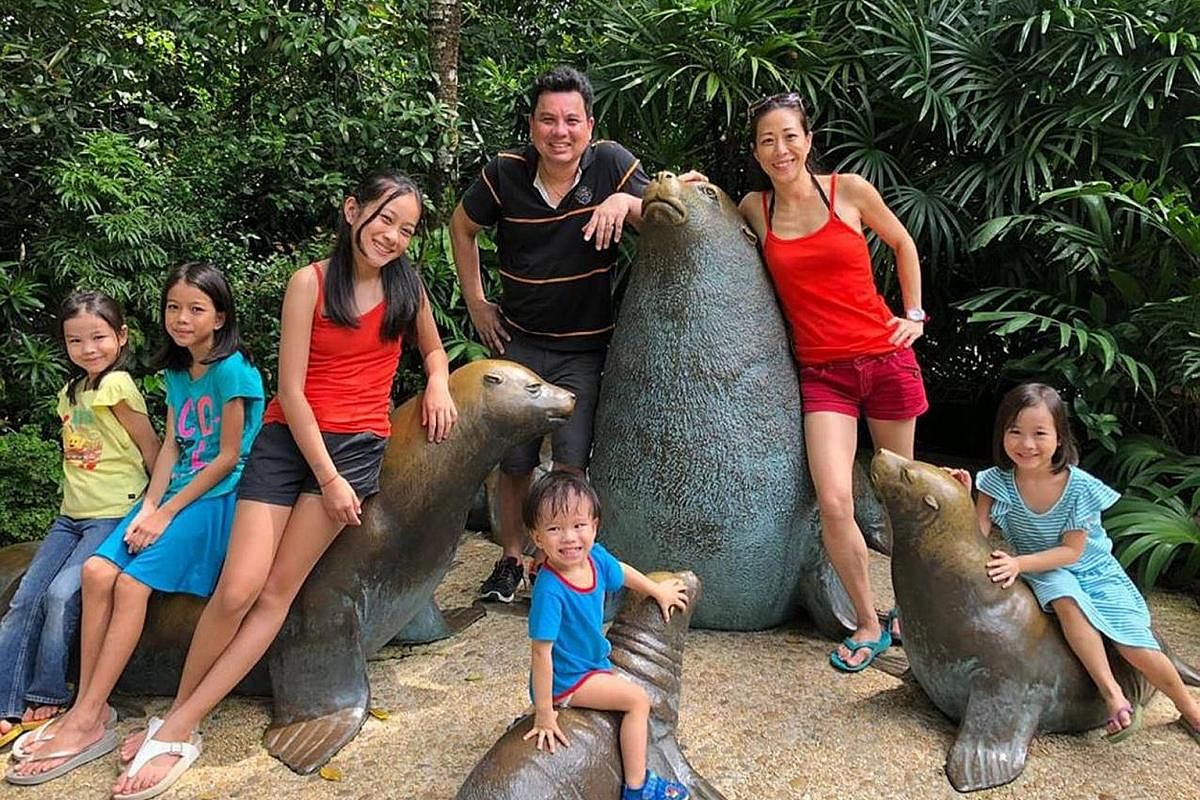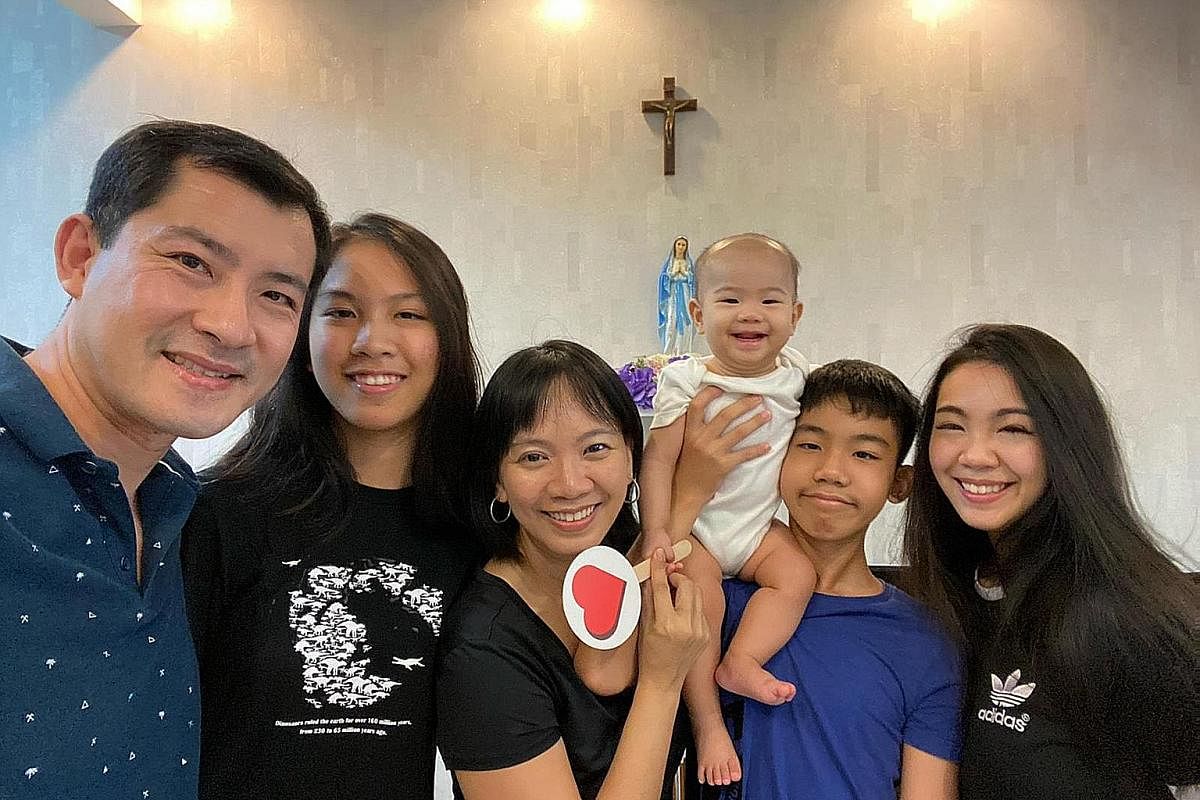Parenting in a pandemic: How to take care of yourself and your kids
As parenting becomes more complex during the pandemic, parents should watch out for their mental and physical health so that they can care better for loved ones


Volatile, uncertain, complex and ambiguous - the acronym Vuca is a buzzword bandied about in management circles, but it aptly describes parenting during the pandemic too, say the experts in an upcoming event.
"The future we thought would happen is now our present. As a parent, it means that all the more we have to empower our children with the necessary mindset and tools to be able to remain adaptable in the face of such massive change," says Ms Sha-En Yeo, 39, an expert in positive psychology who runs a consultancy called Happiness Scientists.
"Instead of buckling down on fear, we can use the pandemic as a huge teaching and learning opportunity for our children," adds the mother of two children aged 11 and six.
She is one of six panellists who will be participating in an online fireside chat titled Parenting In A Vuca World on Saturday.
The event is organised by the Asia Institute of Mentoring, which aims to build a mentoring community across the region.
Ms Yeo and other panellists share some of the strategies that work for them.
1 PUT ON YOUR OXYGEN MASK FIRST
"Safety instructions on aeroplanes insist we put our own oxygen mask on first before assisting others. Likewise, as parents, if we are not physically, mentally and emotionally well, we will not be able to care for the well-being of our loved ones," says Ms Zerlina Sim, 47, a leadership and mindfulness coach who is director of Potential Project Singapore, a leadership, organisational development and research firm.
While some parents may feel they have to put on a brave face, the mother of three children aged 13 to 16 points out that "heightened anxiety and prolonged stress not only reduce mental effectiveness, but are also likely to cause mental health and emotional problems".
She recommends that parents take a short pause during the day to check on their feelings in an honest rather than critical way and remind themselves that they are not alone in their struggles.
Even if they are pressed for time, five to 10 minutes a day practising mindfulness will help them cultivate a resilient mindset, she adds.
If they feel overwhelmed, they should not feel guilty about reaching out to friends, family or community helplines for support.
2 SHARE YOUR STRUGGLES, BUT LISTEN TO THEIRS TOO
Many parents feel lost and do not know how to talk about the pandemic with their kids, Ms Yeo notes.
"In times of change, being able to talk through and share how they feel is really important for children, or else they will come to all kinds of conclusions or be swayed by what they read on the Internet," she says.
Parents' fears could also become their children's fears as they internalise the actions and feelings of adults around them.
"How we respond to this situation is a model for how they would respond should challenges come their way," she adds.
When children share their struggles, Ms Sim suggests that parents use physical cues such as touching their lips to remind themselves not to interrupt or resting a finger under their ear to stay attentive.
"Try not to ignore, judge or dismiss what your child is expressing. Once we fully understand, only then can we help them find solutions," she says.
Parents should also be mindful that teenagers, in particular, "prefer to be understood, not judged, and supported rather than directed".
3 EMPOWER KIDS TO HELP THEMSELVES
Instead of over-scheduling activities for her five children aged three to 14 during the circuit breaker, Ms Junia Tan, 42, gave them space to grow responsibly.
The conscious parenting coach set physical and time boundaries so that she could work uninterrupted during certain hours, while her children played, baked or did their homework.
"I was not responsible for keeping them occupied. They were responsible for what they chose to do with their time," she says. "That autonomy meant they grew in learning how to be accountable as we checked in during mealtimes."
Similarly, parents can encourage their kids to be resourceful whenever they face problems, says Ms Delphine Ang, 47, a youth leadership and youth mentor coach.
While rushing to solve problems for them seems to be a faster way out, it increases children's reliance on adults, who are already overstretched in the crisis.
Entrust kids with planning family bonding activities, adds Ms Ang, who has four children aged six months to 18 years old.
"Children are very creative and they would appreciate an opportunity to be in charge."
Ultimately, parents should remind themselves that the pandemic is not "normal" and let go of previous expectations of themselves and their children, Ms Sim says.
"Providing unconditional love, fulfilling basic needs and ensuring a child feels emotionally safe might be all we should aim for at this time.
"Sharing love, laughter and small moments of joy costs nothing. Everything else can wait."
•Go to str.sg/JBSb to register for the Parenting In A Vuca World fireside chat on Saturday.
Ms Tan is also organising an online Mums' Space Summit from Oct 12 to 16, which will include topics on parenting. Register at mumspace.asia/LP
Join ST's Telegram channel and get the latest breaking news delivered to you.
A version of this article appeared in the print edition of The Sunday Times on September 27, 2020, with the headline Parenting in a pandemic: How to take care of yourself and your kids. Subscribe

